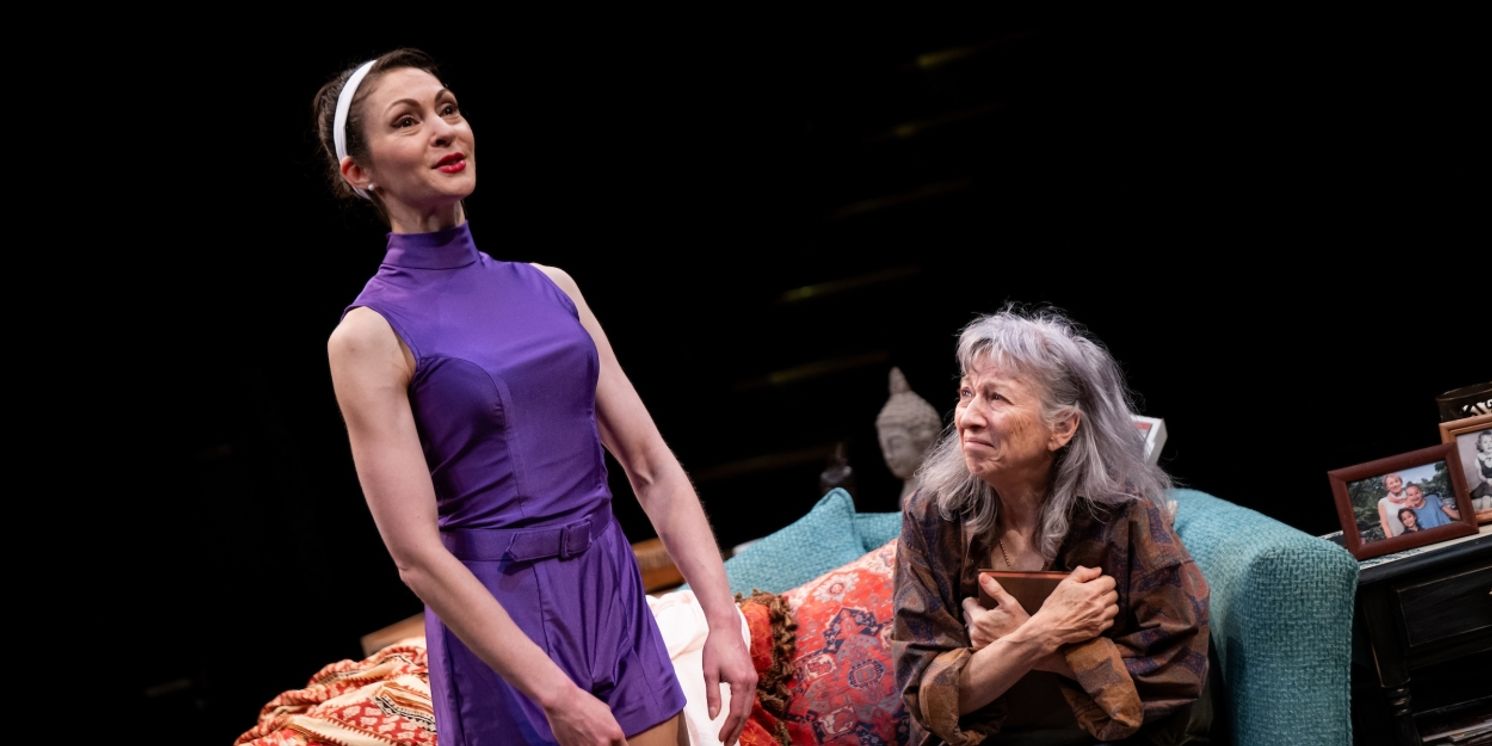Review: José Rivera's YOUR NAME MEANS DREAM an Intensely Psychological Star Vehicle for Two Great Actors
Face it; deep down, we all wish we were programmers.

Face it; deep down, we all wish we were programmers. Every time we meet someone for the first time, we do what we can to manipulate that encounter so that the other person comes away with the best, most forceful impression of who we are – or, rather, who we choose to be at that moment. Doesn’t always go the way we planned, of course, but the goal seems to be to have that person behave exactly as we want them to, and to treat us exactly as we like.
Sometimes this includes telling them to get lost, sometimes not; and sometimes it works, sometimes it fails spectacularly; you get the idea.
José Rivera’s “Your Name Means Dream,” at this year’s Contemporary American Theater Festival, is a brilliant example of one of those epic encounters, a two-hander in which the characters engage in a 2-hour parry-and-thrust over how they expect the other one in the room to treat them, respond to them.
The twist? One of them is a robotic home-care provider called Stacy, a product of AI, society’s demon-of-the-moment; it is programmed to make a careful study of its patient, the incredibly cranky and crude Aislin, and design an optimal treatment regimen. For all the darkness and foreboding that comes with placing a 70-year-old widow under AI’s control, Rivera manages to use this encounter to teach us a lot of valuable lessons about how we ‘program’ both machines and each other.
Rivera directs his own play here, and under his careful tutelage the results are two knockout performances—from Anne O’Sullivan as Aislin, and Sara Koviak as Stacy. O’Sullivan’s foul mouth, and her taste for epithets straight out of the boy’s locker room (I speak with some authority on this score), are only matched by a deep vulnerability; it’s compelling to watch as her four-letter armor falls to her side, and she reveals both her physical and emotional weaknesses.
Koviak, meanwhile, delivers a performance as Stacy that is as stunning as it is unforgettable. Combining a ballerina’s grace with a robot’s unnerving, glassy stare, Koviak’s eyes only change their aperture, their openness, with exposure over time to Aislin’s stubborn humanity. In Rivera’s scenario, although she has no mental memory of her past lives, she has retained a considerable physical memory—her body records what our minds normally would. Which creates the robot’s ability to rediscover movements from the past that now seem appropriate.
Kovia’s Stacy can signal a robotic awkwardness when it comes to intimacy—hugs and hands on shoulders for consolation are carefully-crafted, and often quite amusing. But her flawless execution of dance steps, which she teaches Aislin, presents us with a new vision of the mind-body duality that has obsessed philosophers for ages. Stacy’s mental and physical evolution, established stage by stage by virtue of Christina Watanabe’s lighting effects, also enables you to see her ‘character’ (if you can call it that) develop in discreet stages.
Among the disturbing aspects to Stacy’s behavior is evidence that, prior to her arrival at Aislin’s apartment, she has been programmed by Aislin’s estranged son (who paid for Stacy to keep Aislin off his back). Still, even as a misinformation-fed product of AI, she has a built-in instinct for survival, which in this instance leads her to revive Aislin’s desire to travel—a scheme that almost works.
There are news voice-overs between scenes describing a dystopian urban scene where anti-AI radicals, “Skin Jobs,” dismember robots like Stacy for their spare parts; and for one incredibly thrilling, fascinating moment, it appears that the anti-AI crowd has hacked into Stacy’s brain, producing one of the most stunning displays of chaotic virtuosity I’ve ever seen. The results are 2 parts “Blade Runner,” and 2 parts Lucky from “Waiting for Godot,” as Koviak’s movements are completely independent of the stream of quotes and random dates that spew out of her mouth.
When you enter the Marinoff Theater for this show, you get an odd mix of the familiar and the unfamiliar; David M. Barber’s well-lived in set, an East Village apartment in New York City, complete with vinyl collection and working turntable, will ring a few bells among the Boomers in the audience. But it is discreetly tinted by David Remedios’ sound design, featuring strains of a harp overlaid with ambient traffic noise, like a dream overlaid with machine-like technology.
“Your Name Means Dream” is staged in the round, in Shepherd University’s Marinoff Theater, and not only is it a spectacle of actors at the top of their game, Rivera’s script gives them ample opportunity to shine—and to shine a light on the mysteries of the human heart and the human-generated machine.
Production Photo: Sara Koviak and Anne O’Sullivan in the world premiere of Your Name Means Dream by José Rivera at CATF in 2023. Photo by Seth Freeman.
Running Time: 2 hours with one Intermission.
Your Name Means Dream runs as a part of the Contemporary American Theatre Festival, through July 30 in the Marinoff Theatre at Shepherd University in Shepherdstown, West Virginia.
For tickets visit https://catf.org/buy-tickets/ . You can also email the box office at boxoffice@catf.org or call them at 681-240-2283.
Reader Reviews
Videos

